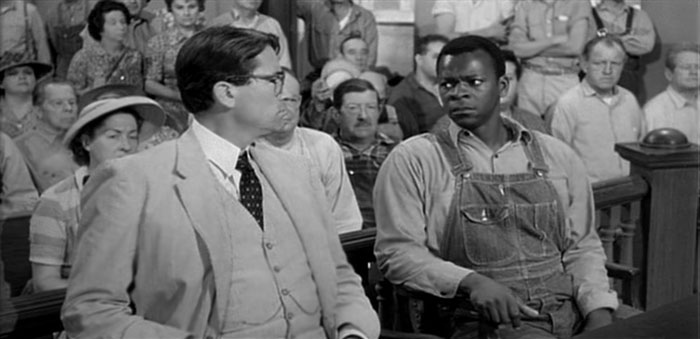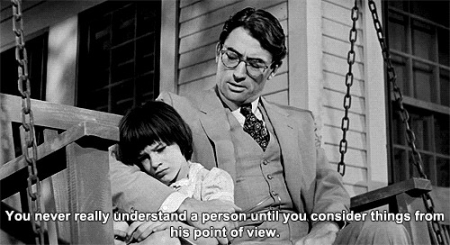The world has lost one of its most important literary and cultural figures with the death of author Nelle Harper Lee. There’s very little to say about the importance of “To Kill a Mockingbird” that hasn’t already been said, both today specifically and in the nearly fifty six years since the novel’s publication. Having attended both high school and college in Georgia, I saw firsthand how much the novel rattled the consciousness of the deep South to its core. It’s still banned and its literary merits are still contested in many places in the South, demonstrating how much weight and resonance the novel still carries—we often turn away from truths that are too ugly to face.
 Gregory Peck and Brock Peters in Robert Mulligan's 1962 Film Adaptation of TO KILL A MOCKINGBIRD
Gregory Peck and Brock Peters in Robert Mulligan's 1962 Film Adaptation of TO KILL A MOCKINGBIRD
Though her impact in the realm of literature is clear, she also helped to shape the world of cinema. The 1962 screen adaptation of To Kill a Mockingbird (which netted three Oscars, including a Best Actor trophy for Gregory Peck and a Best Adapted Screenplay prize for Horton Foote) left an indelible mark on the medium. She was also an uncredited researcher on her friend Truman Capote’s book In Cold Blood, which has been adapted many times over—most notably in Richard Brooks 1967 film.
For cinephiles, it’s hard to consider Harper Lee without thinking of Catherine Keener’s staid, impressive and underrated portrayal of the prize-winning author in Bennett Miller’s Capote. She played Lee as smartly observant, terse but incredibly perceptive. The scene on the train where Lee quietly picks up on the fact that Capote has paid the ticket agent to compliment his work is one of the film’s choice moments and is a wonderful (albeit fictionalized) window into the friendship of these two authors.
For what she gave to the world of literature, American culture and (inadvertently) the world of cinema we all love, we say to Nelle Harper Lee—thank you and farewell. Today will certainly not be the last time her name is spoken.
